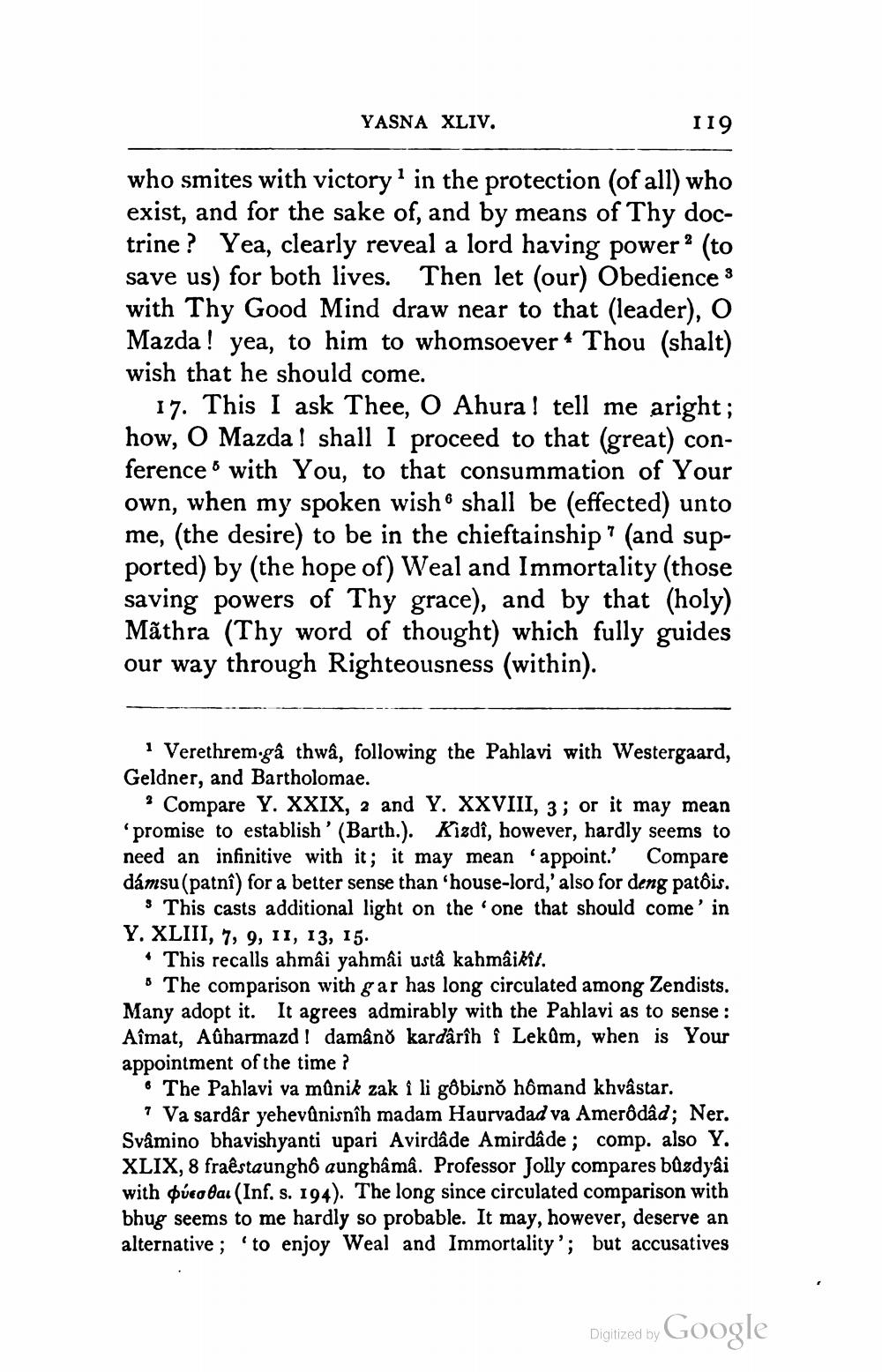________________
YASNA XLIV.
119
who smites with victory in the protection (of all) who exist, and for the sake of, and by means of Thy doctrine? Yea, clearly reveal a lord having power? (to save us) for both lives. Then let (our) Obedience 3 with Thy Good Mind draw near to that (leader), O Mazda! yea, to him to whomsoever - Thou (shalt) wish that he should come.
17. This I ask Thee, O Ahura! tell me aright; how, O Mazda ! shall I proceed to that (great) conference with You, to that consummation of Your own, when my spoken wish shall be (effected) unto me, (the desire) to be in the chieftainship’ (and supported) by (the hope of) Weal and Immortality (those saving powers of Thy grace), and by that (holy) Mãthra (Thy word of thought) which fully guides our way through Righteousness (within).
1 Verethrem.gâ thwâ, following the Pahlavi with Westergaard, Geldner, and Bartholomae.
? Compare Y. XXIX, 2 and Y. XXVIII, 3; or it may mean promise to establish' (Barth.). Kizdî, however, hardly seems to need an infinitive with it; it may mean appoint.' Compare dámsu (patnî) for a better sense than 'house-lord,' also for deng patois.
* This casts additional light on the one that should come' in Y. XLIII, 7, 9, 11, 13, 15.
This recalls ahmâi yahmâi usta kahmâikit. • The comparison with gar has long circulated among Zendists. Many adopt it. It agrees admirably with the Pahlavi as to sense : Aimat, Allharmazd! damano kardarîh i Lekum, when is Your appointment of the time ?
• The Pahlavi va mûnik zak i li gôbisnð hômand khvâstar.
? Va sardar yehevůnisnîh madam Haurvadad va Amerôdad; Ner. Svâmino bhavishyanti upari Avirdâde Amirdâde; comp. also Y. XLIX, 8 fraestaunghô aunghâmâ. Professor Jolly compares bûzdyâi with dúco bau (Inf. s. 194). The long since circulated comparison with bhug seems to me hardly so probable. It may, however, deserve an alternative; to enjoy Weal and Immortality'; but accusatives
Digitized by
Digitized by Google




